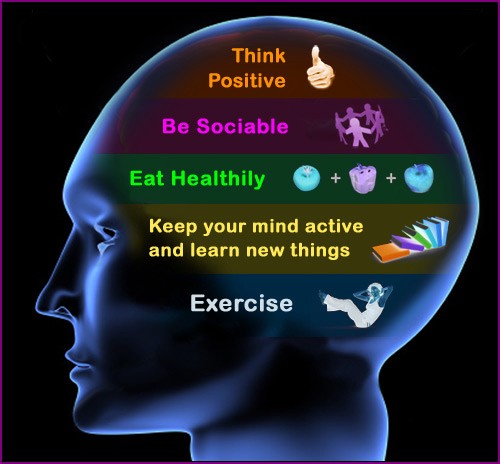Andrew Anglin
Daily Stormer
May 12, 2019
I’ve been doing Self-Help Sunday once or twice a month for over a year now, and we’ve talked a lot about what one should and shouldn’t feed his body.
In light of the staggeringly sad story we heard this week of a 12-year-old girl killing herself after watching a Netflix show about killing yourself, I think it is worthwhile to talk about the importance of what one feeds his mind and soul.
With regards to the girl – I’m sure she had a lot of problems before seeing the show. Jewish media doesn’t have the ability to completely hijack and take over your brain. I’m sure you could show the show to a healthy 12-year-old with a good family life and it wouldn’t result in suicide. In fact, a healthy girl probably wouldn’t even be interested in watching such a macabre show.
That said, it is unlikely that the girl would have killed herself without seeing the show, given that her suicide was a direct copycat of it. The show is called “13 Reasons Why,” referring to reasons why the main character killed herself, and the real-life girl, Jessica, left a note giving “six reasons why” – the poor thing couldn’t think of another seven.
We should understand that the capitalist incentive in media is to make it as appealing as possible, and because of this, it can suck you in. Although it is possible that this “13 Reasons Why” show is a satanic Jew plot to create a suicide epidemic, it is more likely that the producers understood that there would likely be deaths and simply didn’t care. They knew the content was extremely appealing to young girls, they knew it would be a hit, so they went forward, despite the clear risks of deaths – deaths that they knew they couldn’t be held financially responsible for anyway.
Having looked into the show, I’ve found that it is about a girl who leaves tapes after her suicide, blaming everyone she knew for her decision to kill herself. Women are singularly obsessed with blaming others for their behavior, so the idea of being able to blame people from beyond the grave appeals directly to their most fundamental psychology.
Just so, white men – particularly intelligent white men – have an extreme compulsion for introspection, which can lead to wallowing in guilt, which will eventually lead to self-hatred. This is the entire concept behind much music, which is going to have more of an affect on men than film.
It’s easy for us to look at rap music and see that it is appealing to blacks because it triggers their innate love of violence, but it is much harder to look at ourselves.
The late black comedian Patrice O’Neil, who was not stupid, once commented on how bizarre it was to see white people obsessed with Radiohead, given that the entire message of the band was one of self-hatred.
Commenting on the song “Creep,” he said: “White people have this innate thing where they want to feel bad. That’s why they voted for Barack. ‘I’m a creep. I didn’t own slaves, but I’m a weirdo.’”
It’s a true story.
Having personally listened to a lot of depressing music in my youth, I feel very strongly that there is never any good reason to do so. I think it should be completely avoided in its entirety. White men have enough trouble falling asleep at night without thinking of some mistake they made ten years ago that still haunts them without having that instinct fueled by this music.
In fact, just as white men fed black men gospel hymns in order to repress their most violent instincts, we should be repressing our instincts toward extreme introspection and guilt-mongering with music that counters this urge.
Before the era of grunge music – Nirvana and the like – most popular music consumed by white people was designed to do just this.
Mötley Crüe’s “Dr. Feelgood” was about cocaine, but it was also just about suppressing the urge toward aggressive introspection.
That song was released in 1989, just two years before Nirvana’s “Smells Like Teen Spirit,” which has literally the inverse goal – Nirvana encouraged people to wallow in sorrow and self-hatred.
You’d think people would have woken up to what is going on there when the lead singer killed himself, but that type of music remained mainstream well into the mid-2000s. While most mainstream pop music of the present era is much more upbeat (in fact, the Billboard 100 has almost no white music artists), this depressing type of music remains very popular.
I strongly advise people to abstain from any music that is not explicitly upbeat in nature.
I recommend K-pop or synthpop.
Though music is going to have the biggest effect on men, the same principle also applies to other forms of audio-visual media: just avoid anything that doesn’t make you feel better than you felt before consuming it.
Several months ago, I watched the entirety of the sombre BBC series “Peaky Blinders,” and though I do not necessarily regret watching it, I will say that I feel much better watching Japanese cartoons or cheesy action movies from the 1980s.
I have avoided any type of horror film for over a decade, as I reached the conclusion that inducing fear in yourself – or at least trying to do so – for entertainment purposes is not helpful, especially when using modern techniques of film.
I have spent a lot of time living in hostels, and was very regularly the only American in the place. When I did meet other Americans, they would very often tell me of how they were afraid to stay in a hostel, having watched the Jewish horror film “Hostel” about people being kidnapped from such establishments and tortured to death.
Pornography is another audio-visual medium that should be avoided. Far from alleviating the sex drive, pornography – combined with self-stimulation – increases the sex drive due to its addictive character. Eventually, men become sex obsessed and constantly sexually agitated. I have also observed that porn consumption often coincides with various social anxiety disorders. This is a chicken/egg situation, given that we don’t have very good research on what pornography does to the psyche, but there is documentation showing that chronic masturbation leads to decreased testosterone, which implies decreased personal confidence.
Thanks to a 2003 study from the Chinese, we also know that ejaculation lowers male testosterone, and that after seven days of not ejaculating, men’s testosterone spikes to 150%. This should have been self-evident, given that your body is going to want you to have sex more the longer it thinks you’ve gone without sex. Furthermore, if you are ejaculating regularly, your body will assume that you are with a partner whom you have inseminated or are attempting to inseminate, and thus not attempt to signal to you that it is time to go out and find a partner. But the people promoting pornography and compulsive masturbation as “healthy” do not want us to be aware of any of this.
I’m not going to go full Catholic and tell you that knocking one off in the shower a couple of times a month is going to turn your soul black, but due to the issue of testosterone alone, you can be assured that avoiding pornography and regular masturbation will lead to heightened motivation, greater levels of creativity and increased self-confidence.
Overall, you should try your best to avoid media that is:
- Sentimental, or
- Sensual
Young white men naturally have more than enough endogenous sentimentality and sensuality that they do not need to add anything externally. Content that is upbeat, fun, educational or violence-oriented is far superior.
Ask: Does this bring me joy?
The bottom line is that you should consider what you are feeding your mind and soul with as much scrutiny as you consider what you are feeding your body. Not every meal you eat will be peak nutrition, just as not every piece of media you consume will balance your psyche, but if you are aware of it, that alone will lead to better outcomes.





